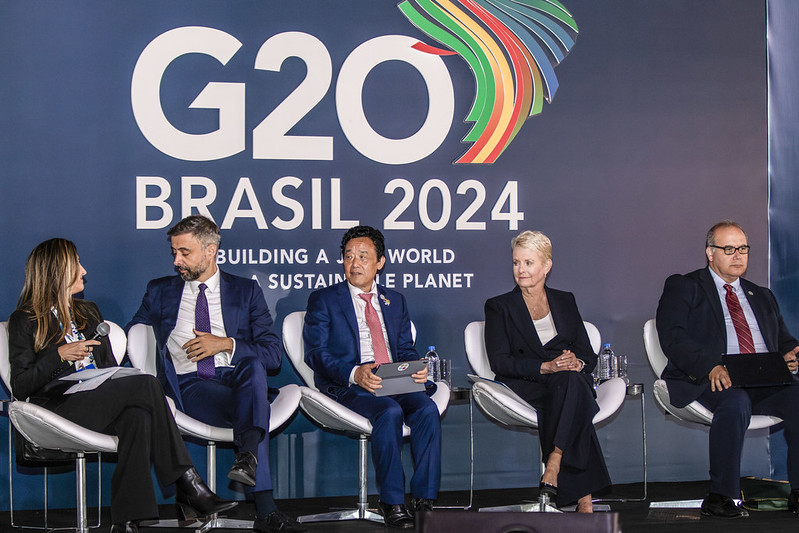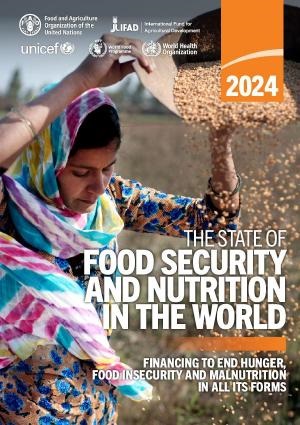FAO welcomes plan for Global Alliance against Hunger and Poverty

Rome - The Food and Agriculture Organization of the United Nations (FAO) has expressed its strong support for the Global Alliance Against Hunger and Poverty, which was officially unveiled during the G20 Ministerial Meetings in Brazil on July 24.
Central to the Global Alliance is the expansion of social protection. Currently, many low-income countries face significant challenges due to the limited social protection coverage, especially in rural areas and among vulnerable populations. These countries often lack comprehensive social protection policies, or their existing policies fall short of meeting the needs of their citizens.
The G20 has urged all governments to implement nationally appropriate social protection systems, with the goal of progressively realizing the right of to social security for everyone.
Focus on social protection
The Global Alliance against Hunger and Poverty recognizes that robust social protection is crucial for reducing poverty, hunger, and inequality, and is integral to promoting sustained and inclusive economic and social development. It has also acknowledged that these measures contribute to advancing the 2030 Agenda, by fostering decent work, and improving health and education outcomes.
The Alliance seeks to support national public programmes and policies. These will include social cash and in-kind transfer programmes; school feeding programmes, especially those using locally procured food from smallholder farmers; stimulation of local markets and value channels; maternal and child nutrition programmes; decent employment; and health and care services.
The Alliance will also promote climate and disaster-risk financing instruments linked with social protection systems to enhance resilience, and to enable faster and more cost-effective responses to shocks and crises.
Reinvigorating global efforts
The Global Alliance against Hunger and Poverty aims to harness political drive, galvanize collective action, enable resource mobilization, and improve alignment of domestic and international support to programs and policies combating hunger and poverty.
The innovative initiative seeks to reduce transaction costs, mitigate risks to maximize yields on donor investments, achieve economies of scale and scope, and foster collaboration through co-financing, blended and other finance modalities from a diverse range of donors.
“The Alliance will enable large-scale, country-owned and country-led implementation of evidence-based policy instruments to eradicate hunger and poverty through its national, knowledge and financial pillars,” the Director-General has said.
Participation in the Alliance is open to all countries. The political agreements achieved in July paved the way for the alliance's launch in November.
FAO remains committed to providing full technical and professional support for the successful implementation of the Global Alliance against Hunger and Poverty, which will be hosted at its headquarters in Rome.
Targets missed by 2030
Progress fighting global hunger has been set back 15 years, with approximately 733 million people going hungry in 2023, equivalent to one in 11 people globally and one in five in Africa, according to the latest State of Food Security and Nutrition in the World (SOFI) report.
As part of its recommendations, this year’s SOFI report, outlines adequate social protection as an effective measure to improve economic access to food and can help counterbalance the effects of economic downturns, shocks, crisis, and conflicts.
The publication was released in the context of the G20 Global Alliance against Hunger and Poverty Task Force Ministerial Meeting in Brazil.
Press release
FAO Director-General welcomes plan for Global Alliance against Hunger and Poverty
Web site
Task Force for a Global Alliance Against Hunger and Poverty
Documents
Global Alliance Foundational Document
Leaving no one behind: G20 Development Ministerial Declaration for reducing inequalities

